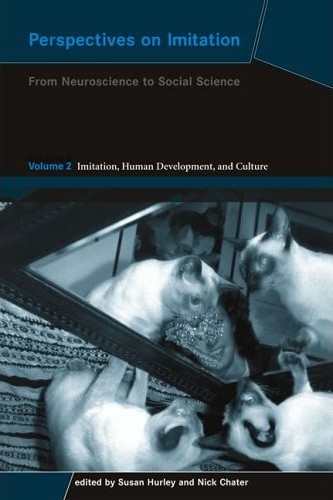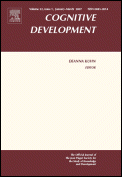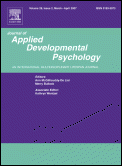 |
 |
 |
Publications |  |
 |
 |
NAVIGATE STRAIGHT TO: Links
|
Zannella, L., Vahedi, Z., & Want, S.C. (in press). What do undergraduate students learn from participating in psychological research? Teaching of Psychology. (Pre-print available here.) Saiphoo, A. & Want, S.C. (2018). High cognitive load during attention to images of models reduces young women's social comparisons: Further evidence against cognitive efficiency. Body Image, 27, 93-97. (Pre-print available here. Data available here.) Want, S.C. & Saiphoo, A. (2017). Social comparisons with media images are cognitively inefficient even for women who say they feel pressure from the media. Body Image, 20, 1-6. (Pre-print available here. Data available here.) Want, S.C., Botres, A., Vahedi, Z. & Middleton, J.A. (2015). On the cognitive (in)efficiency of social comparisons with media images. Sex Roles, 73, 519-532. (Pre-print available here. Data available here.) McLean, C., Want, S.C. & Dyson, B.J. (2015). The role of similarity, sound, and awareness in the appreciation of visual artwork via motor simulation. Cognition, 137, 174-181. Want, S.C. (2014). Three questions regarding the ecological validity of experimental research on the impact of viewing thin-ideal media images. Basic and Applied Social Psychology, 36, 24-37. Nguyen, D., Kemp, N. & Want, S.C. (2011). The effects of funny and serious task content and expectations of fun versus importance on children’s cognitive performance. Australian Journal of Psychology, 63, 154-162. Quigg, S.L. & Want, S.C. (2011). Highlighting media modifications: Can a television commercial mitigate the effects of music videos on female appearance satisfaction? Body Image, 8, 135-142. Want, S.C. (2009). Meta-analytic moderators of experimental exposure to media portrayals of women on female appearance satisfaction: Social comparisons as automatic processes. Body Image, 6, 257-269. Want, S.C., Vickers, K. & Amos, J. (2009). The influence of television programs on appearance satisfaction: Making and mitigating social comparisons to "Friends". Sex Roles, 60, 642-655. Turtle, J. & Want, S.C. (2008). Logic and research vs. intuition and past practice as guides to gathering and evaluating eyewitness evidence. Criminal Justice and Behavior, 35, 1241-1256. Hallett, D., Want, S.C., Chandler, M.J., Koopman, L.L., Flores, J.P. & Gehrke, E.C. (2008). Identity in flux: Ethnic self-identification and school attrition in Canadian Aboriginal youth. Journal of Applied Developmental Psychology, 29, 62-75. Want, S.C. & Gattis, M. (2005). Native- and late-signing deaf children demonstrate intention understanding in imitation. Cognitive Development, 20, 159-172. Harris, P.L. & Want, S.C. (2005). On learning what not to do: The emergence of selective imitation in tool use by young children. In S.Hurley & N.Chater (Eds.) ‘Perspectives on Imitation: From Neuroscience to Social Science. Volume 2: Imitation, Human Development and Culture’. Cambridge: MIT Press. Want, S.C., Pascalis, O., Coleman, M. & Blades, M. (2003). Face facts: Is the development of face recognition in early and middle childhood really so special? In A.Slater & O.Pascalis (Eds.) ‘The development of face processing in infancy and early childhood: current perspectives’. New York: Nova Science Publishers. Siegal, M., Pascalis, O. & Want, S.C. (2003). Le développement social des enfants sourds. Enfance, 1, 81-87. Want, S.C., Pascalis, O., Coleman, M. & Blades, M. (2003). Recognising people from the inner or outer parts of their faces: Developmental data concerning ‘unfamiliar’ faces. British Journal of Developmental Psychology, 21, 125-135. Woolfe, T., Want S.C. & Siegal, M. (2003). Siblings and theory of mind in deaf native signing children. Journal of Deaf Studies and Deaf Education, 8, 340-347. Want, S.C. & Harris, P.L. (2002). How do children ape? Applying concepts from comparative psychology to the developmental study of ‘imitation’. Developmental Science, 5, 1-13. Want, S.C. & Harris, P.L. (2002). Social learning: compounding some problems and dissolving others. Developmental Science, 5, 39-41. Woolfe, T., Want, S.C. & Siegal, M. (2002). Signposts to development. Theory of mind in deaf children. Child Development, 73, 768-778. Siegal, M., Varley, R. & Want, S.C. (2001). Mind over Grammar: Reasoning in aphasia and development. Trends in Cognitive Sciences, 5, 296-301. Also in A. Antonietti, O. Liverta Sempio, & A. Marchetti (Eds.) (2006). Theory of mind and language in different developmental contexts (pp.107-119). New York: Springer. Varley, R., Siegal, M. & Want, S.C. (2001). Severe impairment in grammar does not preclude theory of mind. Neurocase, 7, 489-493. Want, S.C. & Harris, P.L. (2001). Learning from other people’s mistakes: Causal understanding in learning to use a tool. Child Development, 72, 431-443. Want, S.C. & Harris, P.L. (1998). Indices of program-level comprehension. Behavioural and Brain Sciences, 21, 706-707. |
